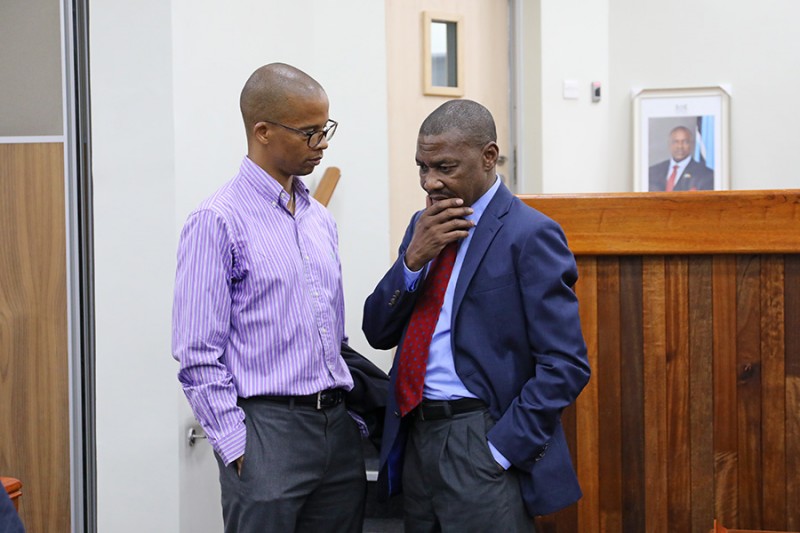LSB Wants Kebonang's Leave Of Absence Reviewed
Mpho Mokwape | Monday February 11, 2019 14:38


Kebonang was granted leave of absence late last year by the Judicial Service Commission (JSC) after the allegations surfaced and now the LSB wants the tribunal to deal with the matter as quickly as possible.
In his maiden address of the opening of the legal year, LSB chairperson, Diba Diba said the LSB has made representation to the JSC that it re-considers its decision and instead recommends to His Excellency the President to establish a tribunal as per the Constitution to make a determination on the matter.
“The approach will afford the affected Judge a quick opportunity to present his side of the story,” he said. Diba explained that its decision was based solely on the credibility of the judiciary, which depends in large measure on the integrity of the judicial officers. He said though the LSB firmly believed in the principle that one is innocent until proven guilty, the society also believes that once a judicial officer is implicated it becomes a different ball game.
“In this regard, the society believes that it is imperative that once a judicial officer is accused of a crime he/she must be given the opportunity to clear his/her name as quickly as possible. It is common course that criminal trials take long to conclude,” Diba said. On the appointment of judges of the High Court, the society called out the newly introduced process for appointment as regressive and uncalled for.
Having called for transparency when appointing judges of both High Court and Court of Appeal, the society believes the new approach by the JSC will not serve any useful purpose. The LSB’s reference was in response to JSC’s announcement that appointment of judges of the High Court will no longer be advertised, but instead those interested were to drop a resume and will be contacted when there is a vacancy.
Diba said it was shocking to receive communication about the new process, especially that they have indicated their stand on the matter. He explained that in 2011 they had adopted a position paper on the appointment of judges and had dealt with the procedure for the appointment of which they had advocated for transparency among others advertisements of vacancies.
“Since then, we have noted that the procedure for appointment of Judges of the High Court, though not sufficiently transparent, was a step in the right direction.
“The society was therefore shocked when it received communication that the JSC has adopted a new process for appointment of Judges at the High Court, which will no longer include advertising for the filling of posts for judges,” he said.
The chairperson explained that LSB believes that the approach was regressive, uncalled for and will serve no useful purpose. Placing it on record that though the LSB was represented in the JSC the ‘unanimous’ decision of the JSC on the subject did not reflect its position as it was contrary to its stated public position adopted in 2011.
